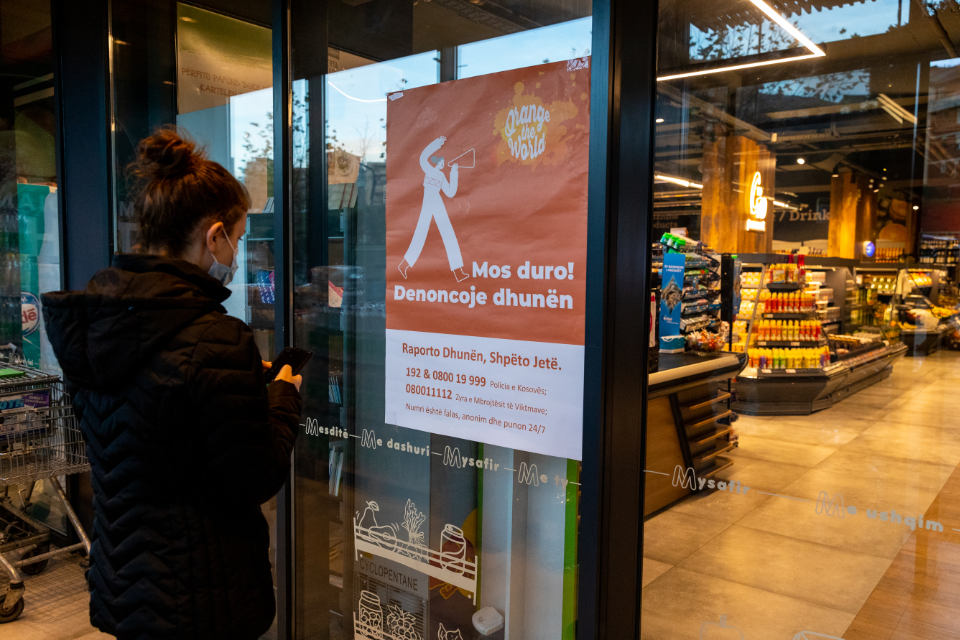Private sector initiatives support the 16 Days of Activism against Gender-Based Violence in Kosovo, reaching 1.5 million individuals in the first week
Date:

Gender-based violence has detrimental effects on everyone and cannot be considered a private matter. To highlight this, a number of private sector companies and corporations in Kosovo[1] joined this year’s 16 Days of Activism against Gender-Based Violence campaign.
The importance of the role of private sector in responding to gender-based violence is more evident than ever, and it makes good business sense too. This year for the first time, UN Women invited private sector representatives in Kosovo to become part of the global campaign, with around 20 companies and corporations joining. In the first week, 1.5 million individuals were reached across Kosovo.
By using their brands and reach, the companies challenged the traditional gender norms and stereotypes that fuel gender-based violence and harassment in the first place.
As part of the global campaign against gender-based violence, the participating companies disseminated information on gender-based violence through their own communication channels. Special emphasis was given to providing the hotline phone numbers for reporting cases of gender-based or domestic violence. In this regard, companies used their social media accounts to spread messages against gender-based violence, placing messages on their products, creating “orange corners”, disseminating brochures, and displaying posters in their premises. In addition, they “oranged” their premises, broadcast advertisements on their television channels, played campaign messaging on led screens in the main squares of different cities in Kosovo, published articles on different portals, and organized events with the intention of raising awareness, mobilizing the community and preventing gender-based violence.
Ymran Fusha, director of the hygiene factory “ER-ABI” discussed about the potential of private sector in preventing gender-based violence and called for community mobilization “Even though businesses consider it as a business and moral imperative to deal with the issues of gender-based violence in their workplaces, they should also be aware that the impact of gender-based violence extends far beyond the workplace, affecting individuals, families, and communities.”
Vlora Nushi, Head of UN Women in Kosovo, highlighted the role of the private sector in preventing gender-based violence and raising awareness in the community by saying: “Businesses should make use of their influence to encourage their partners, consumers and community leaders to raise awareness, mobilize collective action, shift traditional attitudes and norms, and change laws and administrative practices to prevent gender-based violence and provide proper compensation and support to survivors when violations do happen.”
She said that although gender-based violence is a quite a challenging issue to tackle, businesses have the capacity to shift norms in the community, and a lot to gain from such efforts, including improved overall performance and productivity.
[1] All references to Kosovo should be understood to be in the context of United Nations Security Council resolution 1244 (1999).